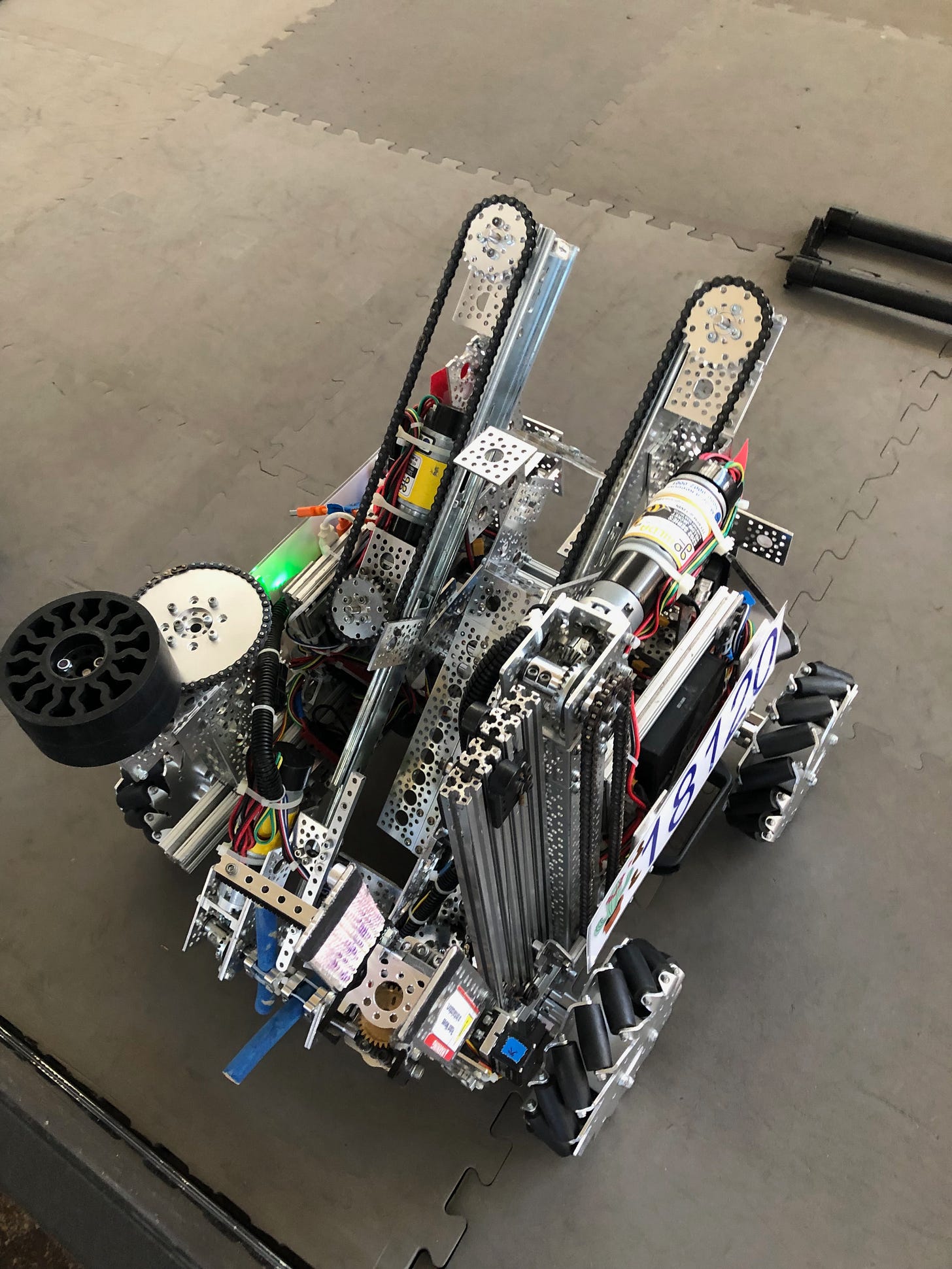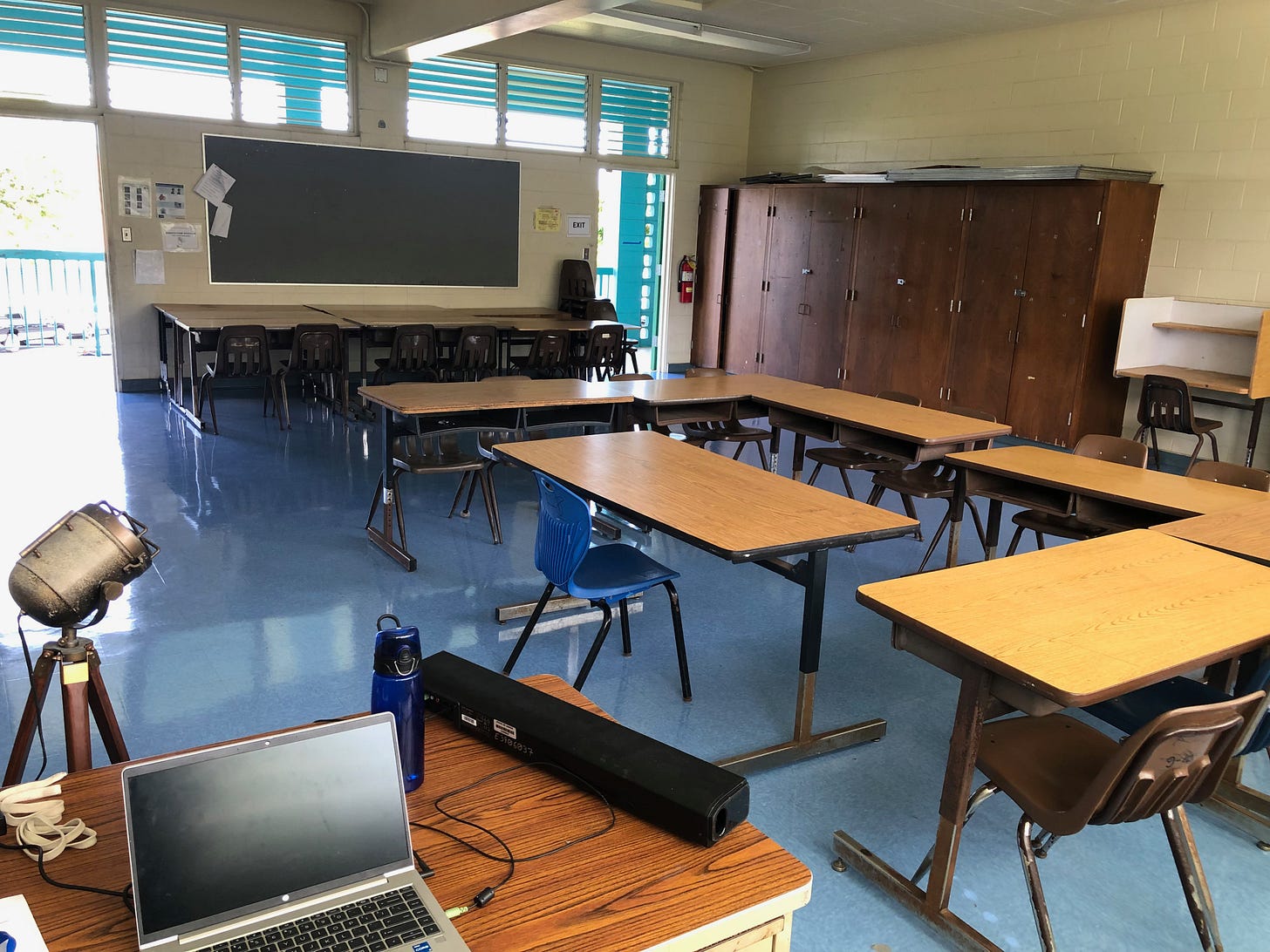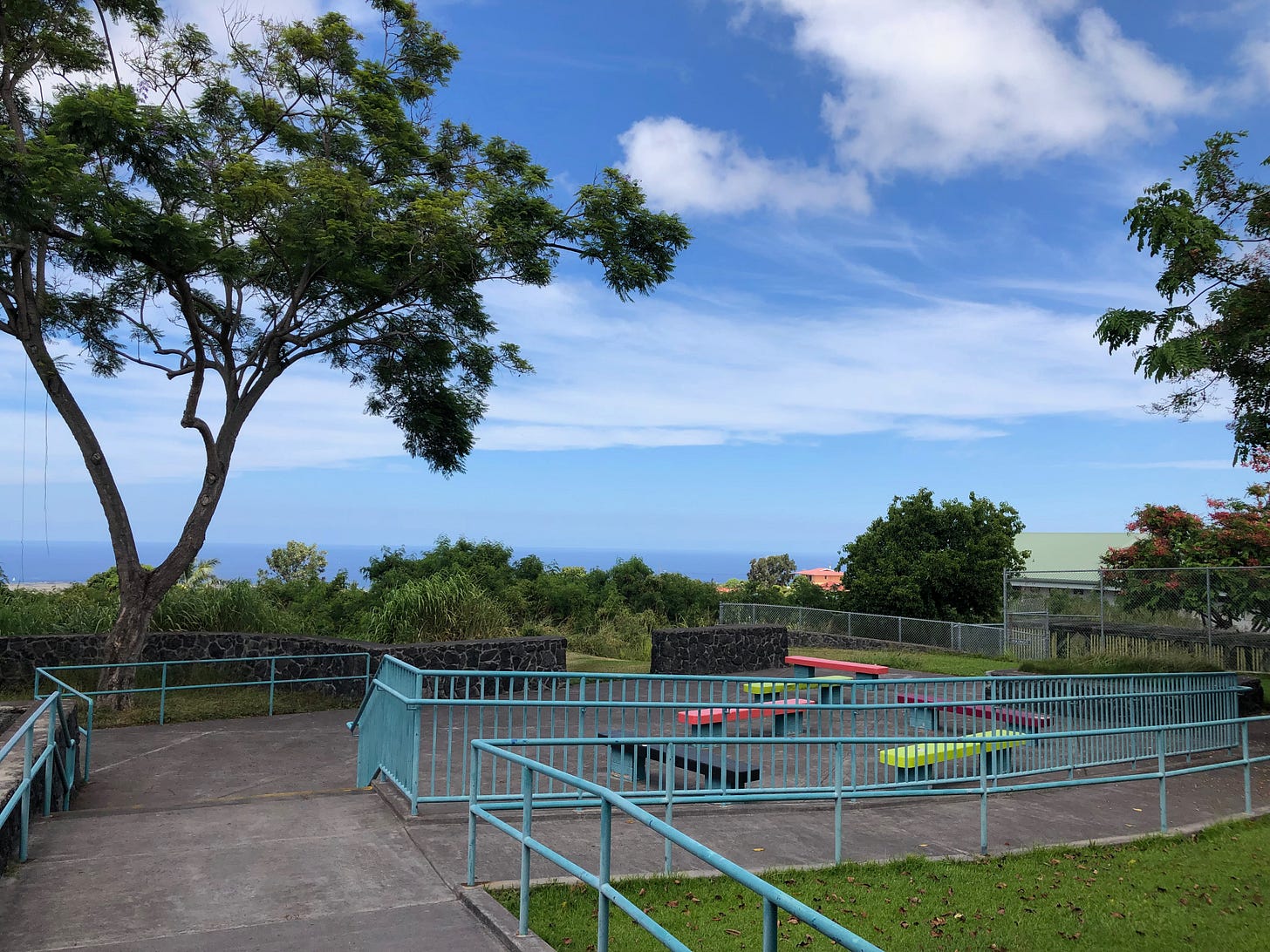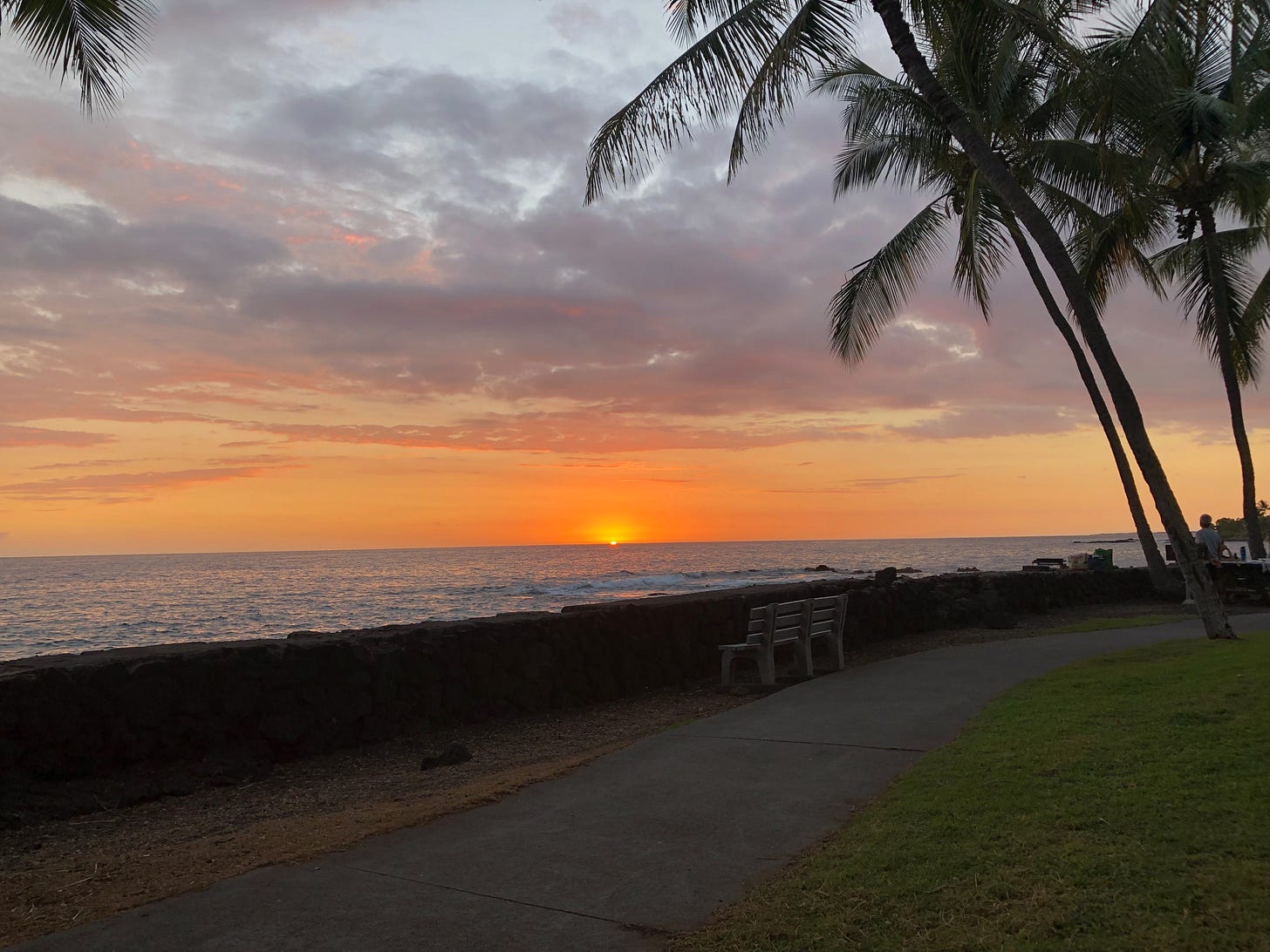The big day arrived this past Monday, 1 August 2022. Six years from when I enrolled at University of Washington Bothell to complete my undergraduate degree with the goal of becoming a college English teacher. While teaching English for students with disabilities (Special Education) at a middle school is not what I had in mind when I set out on this journey, it is a wonderful opportunity to do the work I’ve been wanting to do while serving a major need within the community. However, despite holding a BA and MLitt, having worked as a writing tutor, indie editor/publisher and classroom assistant as well as a summer of intensive training and summer school student teaching with Teach For America, my first day made it clear that I am highly unqualified for the teaching position I now hold.
When I signed up with Teach For America, I knew that I was signing up to be thrown into the fire with minimal training. What I didn’t know was the degree to which this would be true: the extraordinarily impractical nature of TFA’s summer training and the utter lack of Special Education preparation despite being placed into a Special Education role. After signing up, I learned that TFA corps members in Hawai’i are hired by schools on an emergency basis. In other words, since we have not yet completed a teacher preparation program, schools can only hire us when they have exhausted all qualified applicants and positions remain unfilled. This makes sense, of course students should have highly qualified teachers whenever possible. However, the severe teacher shortage in Hawai’i leaves hundreds, perhaps thousands, of positions vacant or filled with emergency hires.
The thing is this: While I knew I would be in the midst of a teacher training program when I began teaching with Teach For America, I made the assumption that they would at least provide me with enough of a foundation to create a productive learning community for my students. My first week made it abundantly clear that this was not the case. For the first time in my life, I am experiencing what it is like to be put into a job that I am not qualified for. It’s not like when I was thrown into daunting software projects in my tech career, because in those cases I had the foundational skills and knowledge so that I could learn to sail in rough seas. Instead, with TFA I am floundering around in the water without a paddle.
It’s stressful. Thoughts of leaving have crossed my mind. What keeps me staying with it and motivated is the fact that I am the best person my school can find to be there for these kids, even if I can’t do the job. If it wasn’t me, it would be someone equally or worse qualified. It may be no one at all. These kids deserve so much more than I can offer, but I am certainly not going to give them even less.
Instead, I’m taking it in my own hands to fill the gaps in my knowledge and skills. While TFA provides ongoing teacher training over the next year, Special Education is not part of the curriculum. I can’t stress this enough: Half of the new corps members in my region have been placed into Special Education positions by Teach For America, but Teach For America provides no training in Special Education as part of their teacher preparation program. While they mention some theories related to Special Education in one of their online asynchronous training modules, no practical training is provided beyond useless sentences like “Get ready to write Individualized Education Plans!†while deferring to some unknown entity who will provide training in how to do this.
The Department of Education steps in and provides some training on writing IEPs, but it is more along the lines of how we avoid getting sued by parents (which is how Special Education came into existence in the first place…). There are some additional Special Education trainings coming up from the DOE and I’m hopeful they will provide some practical support in serving my students, but I’m keeping my expectations low. Instead, I am beginning to seek out qualified mentors and training for Special Education on my own.
The biggest challenge I am currently facing is the monumental gaps between my students’ grade levels and their reading and writing abilities. In general, my students are in 7th or 8th grade and reading at a Kindergarten or first grade level. This is far more than a need for intensive literacy intervention because my students’ disabilities directly impact their ability to succeed without individualized supports. And that’s where my missing tools become very clear: I know the basics of teaching English and providing literacy interventions, but I know nothing about how to find, implement and utilize educational supports for students with disabilities.
It doesn’t help that after reviewing my students’ IEPs I am not sure I would call them individualized at all. Too often, disabilities are defined in no more detail than “Specific Learning Disability†…how specific is that? And the listing of supports required (graphic organizers, extra time, fidgets, prioritized seating, note taking, etc) are often identical from case to case. Even if there are no additional or more specific supports required than what is listed, there is a lot more required to effectively teach these students than providing the listed accommodations.
Maybe that’s what is harder to put in writing, whether it is in an IEP or this blog post - every student is unique and their learning is uniquely impacted by their disabilities. It’s easy to understand when you spend hours in the classroom with them, even just a few hours as is my case after my first week teaching. The incredible complexity and variability means that far more than a handful of accommodations lead to successful learning. How do I meet these kids where they are at in reading and writing ability, accommodate their disabilities and implement lessons that engage them and lead to measurable improvements?
Not only does Teach For America fail to provide training for this, I surmise that most of the Special Education teachers who have worked with my students in the past never were able to find solutions that got results. I need to be careful not to discredit other Special Education teachers, but also acknowledge the likelihood that my students’ previous Special Education teachers were just as unqualified as I am (or worse).
I’m not the sort of person who can sit in this nasty predicament and fail my students while writing it off as the fault of TFA or the DOE. As much as I knock these organizations, I think they are just as concerned with equity as I am. It’s not an easy problem to solve. So I take what I can from them, but also seek out more because I want to give students the education they deserve.
I haven’t made any progress yet, this week has been more about learning the problems I will be facing over the upcoming year. However, I do know that the College of Education at University of Hawai’i Manoa has a lot of Special Education expertise and related programs. Perhaps I can learn from them, if not immediately, following my training with TFA. I still want to find something that will help me in the near-term, whether its training programs, books or mentors, I’m actively seeking all of the above.
There have been some bright spots over the past week, namely the learners. In all of the classes I teach, I have been inspired by my students. They are full of energy and potential, they have such incredible backgrounds and passions, they show up every day (in their own way) for the opportunity to learn and grow. Students I taught over the summer are quick to say hey when they see me (and even seek me out); it’s a gift to know I have had a positive impact on their lives.

Additionally, even more unexpected than being a Special Education teacher, I am teaching a robotics elective class and coaching an after school robotics program. Students and parents have already been telling me how excited they are about the offerings and I am only beginning to get a grip on them myself, but see immense opportunity to inspire and open up opportunities for learners. I’m energized and grateful that I can put my background in the tech industry to good use, exploring the role of technology in addressing the vast social and ecological issues facing Hawai’i alongside my students.
It’s been a surprising, dismaying, inspiring and intense first week. The work is far from what I expected in 2016 when I started my journey towards a career in education, but with time and hard work I am hopeful that it will be far better than I ever imagined.




